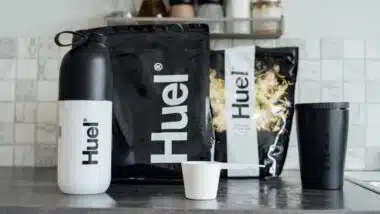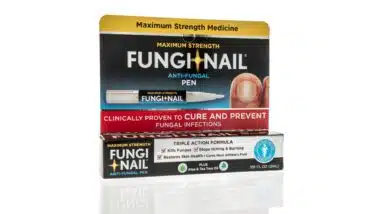 Drug makers, for many years, have aggressively marketed testosterone replacement therapy (TRT) to men.
Drug makers, for many years, have aggressively marketed testosterone replacement therapy (TRT) to men.
The advertising says if they have symptoms such as grumpiness, lack of energy, or fatigue, they should consider asking their doctor for a drug to treat “Low-T.” These are, however, often part of the natural lowering of testosterone levels all men experience with age. But thousands bought into it, and were prescribed gels, patches or received injections.
The most popular method for TRT is the use of T-Gel products such as AndroGel, Axiron, Testim, and others. The problem is these gels and creams carry health risks, not only for the men using them but possibly for women and children who accidentally come into contact with it. To eliminate this secondary exposure risk, Clarus Therapeutics is developing a testosterone pill. Rextoro, a 1% oral testosterone undecanoate medication, just completed Phase III clinical trials.
The company still needs to conduct a Phase IV trial to look at the medication’s impact on HDL cholesterol (good cholesterol). AndroGel, the current leading T-Gel product on the market has been shown to decrease good cholesterol by 12 percent. Rextoro, in comparison, saw a 22 percent drop in one trial, and a 9 percent drop in another. None of these drops in HDL are desired outcomes, so further testing is needed.
It is believed that if Rextoro is approved by the U.S. Food and Drug Administration (FDA), it could take AndroGel’s place as market leader. A pill is easier to use, provides a reliable dosage, and eliminates accidental exposure risk. But like all testosterone drugs, the risks of TRT are still there.
Dangers of TRT
Originally approved to treat health related testosterone deficiencies, such as hypogonadism, many testosterone therapy prescriptions today are now given for “lifestyle reasons.” Aggressive marketing has made TRT a multibillion-dollar industry, and led healthy men to believe that they need these drugs.
As the market grew, so did adverse event reports about T-Gels and TRT medications. Serious questions led to studies about the safety of the drugs. It’s been alleged that Low-T drugs cause serious medical problems, including life threatening cardiac events, strokes, and thrombolytic events. TRT medications have been around since 2002. The FDA issued black box warning for testosterone prescriptions didn’t occur until 2009. And even then, no one really took notice until the publication of two studies in 2013 and 2014.
The Journal of the American Medical Association (JAMA) published the first study in November 2013. Their research proposed that side effects of low T drugs may increase the risk of heart attacks, strokes, and death among older men with certain pre-existing heart conditions.
The second study followed in PLOSOne in January 2014. Its findings showed Low-T treatments could double the risk of heart attack in two groups of men: those over the age of 65 and younger men with heart disease. In response to the research, the FDA opened a TRT safety review on Jan. 31. Media outlets covered the review, bringing awareness to the public of the risks of testosterone replacement therapies. This led to a jump in the number of TRT lawsuits being filed, and more studies being undertaken. In February the medical journal Urology published a study showcasing inconsistencies and inaccuracy with blood test screens for Low-T. Too many variables exist that impact testosterone levels, even watching sports. “In some cases, blood tests conducted on the same man on the same day showed testosterone levels varying by as much as 30 percent between labs.”
So many lawsuits have been filed by victims who have suffered testosterone injury that say they didn’t receive adequate warning for these risks that T-Gel product liability lawsuits filed in U.S. District Courts nationwide were centralized in the Northern District of Illinois before one judge as part of a multidistrict litigation (MDL).
In general, AndroGel heart attack lawsuits are filed individually by each plaintiff and are not class actions.
Do YOU have a legal claim? Fill out the form on this page now for a free, immediate, and confidential case evaluation. The attorneys who work with Top Class Actions will contact you if you qualify to let you know if an individual lawsuit or class action lawsuit is best for you. Hurry — statutes of limitations may apply.
ATTORNEY ADVERTISING
Top Class Actions is a Proud Member of the American Bar Association
LEGAL INFORMATION IS NOT LEGAL ADVICE
Top Class Actions Legal Statement
©2008 – 2025 Top Class Actions® LLC
Various Trademarks held by their respective owners
This website is not intended for viewing or usage by European Union citizens.
Get Help – It’s Free
Join a Free Testosterone Product Class Action Lawsuit Investigation
If you or someone you know suffered a heart attack, stroke, blood clot, or other injury as a result of using a testosterone gel or cream, legal options are available. Find out if you qualify to join a free testosterone gel class action lawsuit investigation and pursue compensation for you or your loved one’s injuries by filling out the form below.
An attorney will contact you if you qualify to discuss the details of your potential case at no charge to you.
Oops! We could not locate your form.












